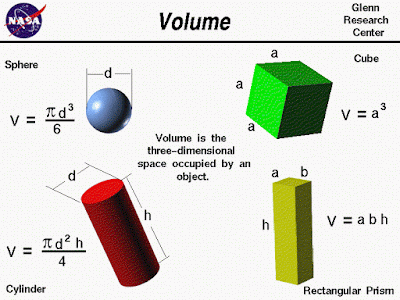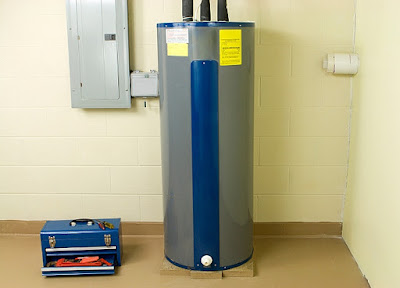How Many and How to Calculate Pints, Quarts, Gallons to and from Pounds
Alternate Titles or Questions
- How to Convert Pints to Quarts to Gallons to and from Pounds?
- Volume to Weight Conversions or Weight to Volume Conversions – 8:4:1:8.
- How many pounds in X pints, quarts, or gallons?
- How much does X gallons, quarts, or pints weigh?
 |
| Volume to Weight Conversions. Weight to Volume Conversions. Simple math to convert or calculate pints, quarts, gallons, and pounds. |
Be advised that this page is US-centric. As an example, this does not work in the UK where a pint is 1.25 pounds as opposed to US 1.043 pounds at room temperature (RT). There are also issues of temperature and density, both of which are addressed further down the page. The purpose of this page is for practical, everyday business-of-living uses only. For that it will serve you well.
First – The Quick Answers to Volume Amounts and Ratios
Volume Definitions
- 2 pints equals 1 quart.
- 4 quarts equals 1 gallon.
- 8 pints equals 1 gallon.
Or to Put It Another Way...
- 1 quart equals 2 pints.
- 1 gallon equals 8 pints.
- 1 gallon equals 4 quarts.
Converting Volume to Weight
Converting volume to weight has everything to do with the density of the liquid. Fortunately, this question usually has to do with:- How much does the gasoline in your gas tank or a gas can weigh?
- How much does a specific container of water or other mostly-water grocery items weigh?
- Questions relating to home water heater size, calculated water volume and the resulting weight.
Basic Formulas
- A pint weighs a pound.
- There are two pints in a quart, so a quart weighs 2 pounds.
- There are four quarts in a gallon, so a gallon weighs 8 pounds.
- And the eight pints in a gallon, also weighing 8 pounds.
Some Household Examples
- A 1-quart bottle of Gatorade weighs 2 pounds. Note: there are 2 pints in a quart and 4 quarts in a gallon. As a side note: there are 16 fluid ounces in a pint, 32 fluid ounces in a quart; 1 and 2 pounds respectively.
- A 2-liter bottle of Pepsi would convert to a weight of a little over 4 pounds. Note: A liter is slightly more volume than a quart.
Some gallon examples
- A 1-gallon container would convert to a weight of 8 pounds.
- A 5-gallon container weighs 40 pounds.
- A 10-gallon container weighs 80 pounds.
- A full, 25-gallon SUV gas tank means you are hauling around 200 pounds of fuel.
- A typical city water tower can hold anywhere from 300,00 to 600,000 gallons of water, which converts to a weight of 2,400,000 to 4,800,000 pounds of water sitting on those "stilts".
The Density of the Liquid Significantly Affects the Rules Concerning Volume Conversion Calculations to Weight
A major component of converting fluid volume to a weight measurement is the density of the fluid. For gasoline, water, and most grocery items; the rule of a-pint's-a-pound will serve you just fine. However, as an example, the rule probably wouldn't work too well with any significant volume of engine oil. As an extreme example, the liquid metal/element mercury would totally throw the pint's-a-pound rule out the window. So of course would any molten metal or alloy.
Fluid density is also affected by temperature. This is why many people fill their gas tank first thing in the morning. There is more gas per gallon at 50 degrees Fahrenheit than at 90 degrees Fahrenheit. It should be noted the percentage difference is in the low single-digits.
Here is a worthwhile page from NASA about Density, Mass (weight), Volume for both solids and liquids.
Side note: the tilde (~) is the mathematical symbol for approximate.
How Much Does the Water Weigh in a Full Water Heater?
From the above NASA chart we see the volume formula for a cylinder is V = (πd2h)/4.
Water tank heaters come in all sizes. For the purposes of this example, we will say the water tank heater has a measured height of approximately 54 inches; what with this, that, and the other, the water part is probably around 48". The diameter measured as 18"; what with insulation, etc., 16 probably works.
So,
d = 16
h = 48
Thus (" * " meaning to multiply),
V = (3.14 * 16 * 16 * 48) divided by 4.
Since all numbers are inches, the answer will be in cubic inches. We reduce the formula as follows:
9646/231 = 41.76 gallons.
What with the inner measurements being estimates, looks like it is a 40 gallon water heater.
May all your calculations be prosperous ones.
- End of Article -
List of Frequent Volume-to-Weight Conversion Q&A
The Most-Searched-for Questions and Answers for How Many Pounds
- How much does 1.5 quarts weigh? Answer is 3 pounds.
- How much does 2 quarts weigh? Answer is 4 pounds.
- How much does 3 quarts weigh? Answer is 6 pounds.
- How much does 5 quarts weigh? Answer is 10 pounds.
- How much does 6 quarts weigh? Answer is 12 pounds.
- How much does 10 quarts weigh? Answer is 20 pounds.
- How much does 16 quarts weigh? Answer is 32 pounds.
- How much does 5 gallons weigh? Answer is 40 pounds.
- How much does 10 gallons weigh? Answer is 80 pounds.
- How much does 15 gallons weigh? Answer is 120 pounds.
- How much does 20 gallons weigh? Answer is 160 pounds.
- How much does 50 gallons weigh? Answer is 400 pounds.
- How much does 55 gallons weigh? Answer is 440 pounds.
- How many pints is a pound? Answer is 1.0 pint.
- How many quarts is a pound? Answer is 0.5 quarts.
- How many gallons is a pound? Answer is 0.125 gallons.
 |
| The formulas for the volume of a sphere, the volume of a cube, the volume of a cylinder, the volume of a rectangular prism. |
More Water and Gasoline Volume-to-Weight Examples
Depending on what unit of measurement you use, volume will equal cubic English or cubic Metric; examples being cubic inches or cubic centimeters.Side note: the tilde (~) is the mathematical symbol for approximate.
English
- 29 cubic inches equals ~1 pint, which equals ~1 pound.
- 58 cubic inches equals ~2 pints, which equals ~1 quart, which equals ~1/4 of a gallon, which equals ~2 pounds.
- 231 cubic inches equals ~4 quarts, which equals 1 gallon, which equals 8 pounds.
Metric
Most of the world uses metric. There is a reason for that. As an example, 1000 cubic centimeters equals one liter, 1000 grams equals one kilogram, etc.; all nice, neat, and tidy. The United States and others are trying to get with the program; metric is already included with English measurement on most U.S. consumer items.
How Much Does the Water Weigh in a Full Water Heater?
– Water Tank Size Volume Formula and Answers –
 |
| Serendipitous energy.gov page on everything about water heaters, including how to buy one. |
How to Calculate the Weight of the Water in a Home Water Heater
How much does the total amount of water in a water heater weigh, volume to weight conversion.From the above NASA chart we see the volume formula for a cylinder is V = (πd2h)/4.
Water tank heaters come in all sizes. For the purposes of this example, we will say the water tank heater has a measured height of approximately 54 inches; what with this, that, and the other, the water part is probably around 48". The diameter measured as 18"; what with insulation, etc., 16 probably works.
So,
d = 16
h = 48
Thus (" * " meaning to multiply),
V = (3.14 * 16 * 16 * 48) divided by 4.
Since all numbers are inches, the answer will be in cubic inches. We reduce the formula as follows:
- V = (3.14 * 256 * 48) divided by 4.
- V = (3.14 * 12288)/4
- V = 38514/4
- V = 9646 cubic inches
9646/231 = 41.76 gallons.
What with the inner measurements being estimates, looks like it is a 40 gallon water heater.
- A gallon weighs 8 pounds.
- So multiplying 40 times 8 gives 320.
- A 40-gallon water heater contains 320 pounds of cold water.
- 10 gallon water heater is 2310 cubic inches and the water weighs 80 pounds.
- 20 gallon water heater is 4620 cubic inches and the water weighs 160 pounds.
- 30 gallon water heater is 6930 cubic inches and the water weighs 240 pounds.
- 40 gallon water heater is 9240 cubic inches and the water weighs 320 pounds.
- 50 gallon water heater is 11550 cubic inches and the water weighs 400 pounds.
- 80 gallon water heater is 18480 cubic inches and the water weighs 640 pounds.
- 100 gallon water heater is 23100 cubic inches and the water weighs 800 pounds.
Converting Cubic Inches to Cubic Feet...
...and the corresponding volume and weight ratios. It is surprising how much just one cubic foot of water weighs.With the pint-equals-pound rule, one cubic foot of water weighs 60 pounds for approximation purposes.
A cubic foot is 12 inches times 12 inches times 12 inches. So 1728 cubic inches equals 1 cubic foot. To convert cubic inches to cubic feet, simply divide the cubic inches by 1728. So using the above examples, we would have:- 2310 cubic inches equals 1.34 cubic feet equaling 10 gallons equaling 80 lb.
- 4620 cubic inches equals 2.68 cubic feet equaling 20 gallons equaling 160 lb.
- 6930 cubic inches equals 4.02 cubic feet equaling 30 gallons equaling 240 lb.
- 9240 cubic inches equals 5.36 cubic feet equaling 40 gallons equaling 320 lb.
- 11550 cubic inches equals 6.70 cubic feet equaling 50 gallons equaling 400 lb.
- 18480 cubic inches equals 10.72 cubic feet equaling 80 gallons equaling 640 lb.
- 23100 cubic inches equals 13.40 cubic feet equaling 100 gallons equaling 800 lb.
May all your calculations be prosperous ones.
- End of Article -
Re: Using Mobile?
Home: site intro and featured articles/resources.
View Web Version: displays Main Menu article categories (will be located below), additional site info (below and side), search function, translation function.
Home: site intro and featured articles/resources.
View Web Version: displays Main Menu article categories (will be located below), additional site info (below and side), search function, translation function.


No comments:
Post a Comment
Alas, anonymous comments have been disabled.
Note: Only a member of this blog may post a comment.